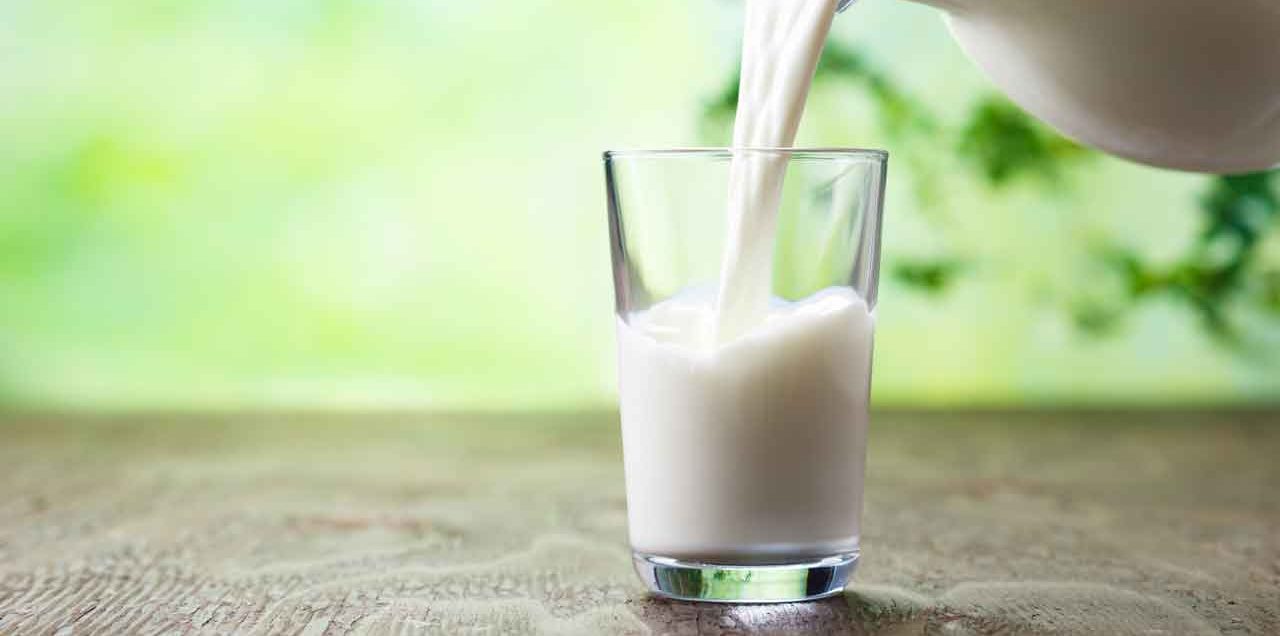Is Raw Milk Safe?

You may be asking "is raw milk safe?" Unfortunately, there are no benefits of raw milk: it could be dangerous. Here's what you should know.
The recent growth of farm-to-table eating trend has many benefits for our health and the American economy. Growing your own vegetables, daily fresh eggs, knowing your farmer — all are undeniably great for health and our communities.
Yet there is one highly questionable recent “natural” food trend: unpasteurized dairy, or raw milk.
YOU MIGHT ALSO LIKE: What Are the Real Benefits of Coconut Oil?
What is raw milk?
You may have seen raw cow’s or goat’s milk for sale at a local grocer or available at a nearby farm. Is raw milk safe? Unfortunately, there are no benefits of raw milk — and it could easily be dangerous, experts agree.
Pasteurization is a process of heating milk to kill harmful bacteria. Developed during the 1800s, Louis Pasteur chanced upon the right method in 1864. It was widely instituted in the early twentieth century. Proponents say raw milk tastes better than pasteurized milk, or claim pasteurization removes beneficial nutrients.
These days, you might experience nausea, vomiting, diarrhea, or flu-like symptoms from drinking milk contaminated with Salmonella, E coli, and Listeria — bacteria pasteurization commonly removes. These risks aren’t negligible — the risk of becoming sick from raw milk is calculated to be 150 times higher than drinking pasteurized products.
But the consequences could be much worse. Historically, dangers from raw milk included the risk of contracting tuberculosis, typhoid, and other often fatal illnesses. Since pasteurization became nearly universal, levels of such illnesses have dropped to less than 1 percent in the United States. Still, they could be on the rise again — outbreaks of raw dairy-related illness quadrupled between 2006 and 2012 compared to the previous 13 years.
Is raw milk legal?
Selling raw milk across state lines is illegal in the United States, but about 30 states still allow it to be sold directly by farmers at a farm or via “cow shares.” Unsurprisingly, states that restrict the sale of raw milk directly from farmers have fewer outbreaks of milk-related illness. One study estimated 17 percent of Minnesotans who drink raw milk — farm sales of raw milk are allowed in the state — become sick.
Does heating milk remove nutrients? Studies show pasteurization — which heats milk for a few seconds, often to 140 degrees Fahrenheit, well below its boiling point — changes the nutritional makeup of milk hardly at all. The few vitamins removed during pasteurization — less than 10 percent of vitamin C and some of the B vitamins — are easy to get through a healthy diet, while beneficial bacteria are much more safely obtained via a probiotic.
Is raw milk ever safe?
The one possibly safe way to drink raw milk? Having a cow in your own backyard. Even then, it’s essentially impossible to control whether bacteria — such as from the cow’s own waste or storage or milking tools — make it into the liquid. In fact, studies show as much as a third of raw milk contains harmful bacteria. That’s true even when the cows that produce it are healthy and the milk seems fine.
What about cheese? A number of cheeses, particularly artisanal, are made with raw milk. To be sold in the United States, however, cheese made from raw milk must be aged for at least 60 days — a period of time that appears to be long enough to naturally kill bacteria. A 2012 study found raw-milk cheeses sold in American stores harbored very little harmful bacteria.
For some, it may still not be worth the risk. The Centers for Disease Control and Prevention (CDC) strongly recommends pregnant women avoid raw milk or any cheeses made from it to avoid Listeria, which can cause miscarriage or fetal or newborn death or illness. Children, teenagers, and those with compromised immune systems should also be sure to avoid raw dairy or products made from it. In an analysis, the CDC found raw milk was most likely to harm children and teenagers, who made up 82 percent of raw milk-related illnesses reported to the agency between 1998 and 2011. Unpasteurized foods should never be given to an infant or child.
Taste may be subjective, but health is not. Be sure your dairy products are pasteurized — the process has saved easily millions of lives over the nearly 150 years since it came into widespread use.
Updated:
April 09, 2020
Reviewed By:
Christopher Nystuen, MD, MBA